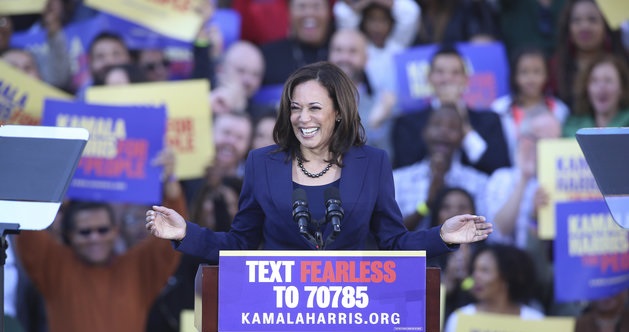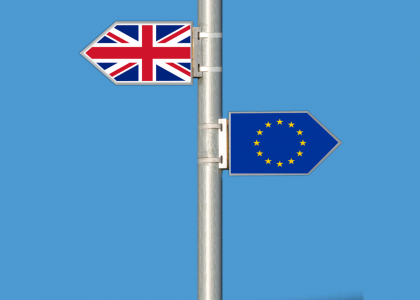Harris kicked off her campaign to become the next party presidential candidate, but there are a number of challenges she’ll face
This week Kamala Harris kicked off the race to become the Democratic Party presidential nominee in 2020. Whilst others are ever so slowly moving into position, launching committees to explore the possibility of running, mulling it over with their families and, more importantly, their campaign gurus, Harris was participating in a CNN televised town hall meeting. She was making her opening remarks to the Democratic Party base and to the American people.
But she faces many challenges, as do other candidates.
One obvious challenge is not that she is female, but that she will end up being not the only female candidate. America has yet to vote in a female president, of course. Indeed, in 2016 Hillary Clinton was the first female presidential candidate for either the Democratic Party or the GOP. This gave Clinton an edge of sorts. But it won’t give Harris an edge over other female candidates obviously.
Harris is also of mixed race heritage. Her parents were immigrants from Jamaica and India respectively. Barack Obama was also mixed race, so in theory that is no barrier. But the difference is that when Obama ran to become the Democratic Party nominee, his heritage made him stand out – there can only be one first non-white president of the United States. This time around the field of candidates to become the Democratic Party nominee is likely to be replete with people of mixed race.
African American, Latino, South and East Asian preferences will matter a lot. But even assuming there is perfectly-aligned ethnic voting – which is a big if – the vote will be split across lots of candidates. This splitting of the non-white vote, so to speak, might partly explain why Joe Biden is currently heading the polls as the most likely candidate to become his party’s nominee, and why Beto O’Rourke is being tipped by many as the ‘dark horse’ in this race. People think the younger, more handsome and more statesperson-like O’Rourke will unnerve Trump in the same way Canadian president Justin Trudeau has done at times. They do not see how Harris will unsettle Trump.
But there is something else very important here. In response to a question at the CNN event, Harris said this about how she thinks voters are going to choose a President in 2020:
‘Their gonna make decisions based on who they think is speaking truth, whose doing it in a way that gives people dignity, doing it in a way that elevates public discourse as opposed to bringing us to lowest common denominator and base instincts. That’s how the voters are going to vote.’
There are two monster truck-sized problems with this. First, in one form or another this is exactly what every other candidate to become the Democratic Party nominee is going to say, and is already saying. Biden said almost identical things in the wake of the Charlottesville car attack (and Trump’s divisive response to it). So what is Harris’ unique selling point? It can’t just be “I’m not Trump”. After all, every candidate, including Biden and O’Rourke, ‘is not Trump’. The same goes for Howard Schultz, the ex-CEO of Starbucks, might run for president in 2020 as an independent. (As an aside, there is a good reason why the Republicans held their noses and allowed Trump to become the GOP nominee. They couldn’t afford to lose Republican voters to independent presidential candidates.)
Second, and more importantly, Clinton said exactly these things in 2016. It is an old record. And it did not win. Clinton presented herself—or was perceived as presenting herself—as a sort of Obama 2.0 or the female Obama. ‘When they go low, we go high’, she would often say on the campaign trail, citing Michelle Obama (unlike Melania Trump who famously plagiarised her). Recall the popular definition of madness: ‘Doing the same thing over and over again and expecting a different result.’
The Democrats cannot win in 2020 just on the strength of turning out existing Democrat voters, plus newly registered voters. Of course, if the presidential election result were based simply on the popular vote – the total number of votes cast across the country – then that strategy might work. Remember that in 2016 Hillary Clinton won the popular vote. But that’s not how it works. Under the Electoral College system – a system historically championed by the demographically smaller slave states – the Democratic Party presidential candidate must perform consistently well in each and every state, to stand a chance of winning. He or she must do better in Florida and in rust belt states (e.g. Iowa, Michigan, Minnesota, Ohio, Pennsylvania) than Clinton did.
For people who voted for Trump in 2016, some of whom the Democrats must win over, endless talk about raising the tone of public discourse could at best end up becoming background noise. At worst it could sound to them like a euphemism for Clinton’s ‘basket of deplorables’, arguably one of her worst campaign mistakes she made. There can be a tendency for people to condemn ‘hate speakers’ – and let’s be clear, Trump along with some of his supporters are hate speakers – in ways that can make them also seem vicious, spiteful and hateful. Does the Democratic Party want to be right about the tone of public discourse in America, or does it want to win?
In one sense a lot has changed since 2016, but in another sense nothing has really changed. The US economy is doing reasonably well yet it also faces some severe challenges – some of which are of Trump’s making, of course, such as the trade war with China and the spectre of periodic government shutdowns.
So middle America is still wanting much of the same things it wanted when it voted for Trump back in 2016 – more and better job opportunities, lower taxes, lower medical insurance premiums, stable house prices, lower interests rates, creative ways of funding or lowering the cost of their children’s college educations, a robust stock market that increases the value of pensions, and so on. In the words of Bill Clinton, it’s the economy, stupid. Trump, a former ally of the Clinton’s, got it.
Now already Harris has also addressed some of these issues, especially in relation to tax cuts and providing access to affordable college education. But on other issues, she seems to be offering a version of the public spending bonanza promised by Bernie Sanders.
Americans are not stupid. They get that you can’t fund a free public health insurance scheme for the entire country without somewhere someone picking up the tab. If middle America thinks that under the Democratic Party they will be the ones to pay, then they might vote Trump again, even against their better natures, as people in the Democratic Party might see it.
Alexander Brown is a Reader in Political and Legal Theory at the University of East Anglia (UEA)
This article was originally published on www.huffingtonpost.co.uk/. Read the original article here.





